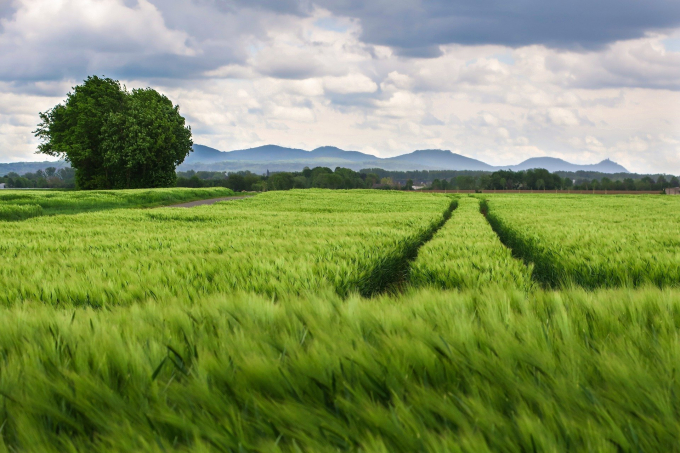May 29, 2025 | 09:35 GMT +7
May 29, 2025 | 09:35 GMT +7
Hotline: 0913.378.918
May 29, 2025 | 09:35 GMT +7
Hotline: 0913.378.918

Credit: Pixabay/CC0 Public Domain
Scientists from the U.S. Department of Energy's Argonne National Laboratory participated in a study that shows innovation in technologies and agricultural practices could reduce greenhouse gas (GHG) emissions from grain production by up to 70 percent within the next 15 years.
Published in Proceedings of the National Academy of Sciences of the United States, the study identifies a combination of readily adoptable technological innovations that can significantly reduce emissions and fit within current production systems and established grain markets.
The study, "Novel technologies for emission reduction complement conservation agriculture to achieve negative emissions from row crop production," maintains that reductions in GHG emissions could be attained through digital agriculture, crop and microbial genetics and electrification. The new technologies, when implemented, promise to drive the decarbonization of agriculture while supporting farm resilience and maintaining profitability and productivity.
Technologies were grouped across three phases: optimize, replace and redesign. The team used Argonne's GREET model to simulate adoption of the new technologies for holistic greenhouse gas emission reductions of grain production. Argonne developed GREET (the Greenhouse gases, Regulated Emissions, and Energy use in Technologies Model), a one-of-a-kind lifecycle analytical tool now used worldwide by government, industry and the science community.
The study offers insights for the development of possible new approaches for agriculture decarbonization and suggests entry points for public and private investment based on a timeline of expected returns on investments in new technologies.
"Our study emphasizes the importance of a two-pronged approach—reducing farming emissions and maximizing soil carbon storage—to addressing the climate crisis through agriculture. Practices that enhance soil carbon storage continue to gain momentum. Complementing this approach by developing and broadly applying emission reduction technologies, including seed genetics, is critical to achieving net negative production," said Dan Northrup, lead author of the study and director of special projects at Benson Hill, a St Louis based company leveraging the natural genetic diversity of plants to develop more healthy and sustainable food choices.
Argonne Energy Systems Division's senior scientist Michael Wang, who leads the Systems Assessment Center and is one of the study's principal investigators, added, "Our holistic assessment of agriculture decarbonization highlights technical areas and focus points so that U.S. agriculture will be a solution to the climate challenge."
(Phys.org)

(VAN) Vikas Rambal has quietly built a $5 billion business empire in manufacturing, property and solar, and catapulted onto the Rich List.

(VAN) Available cropland now at less than five percent, according to latest geospatial assessment from FAO and UNOSAT.

(VAN) Alt Carbon has raised $12 million in a seed round as it plans to scale its carbon dioxide removal work in the South Asian nation.

(VAN) Attempts to bring down the price of the Japanese staple have had little effect amid a cost-of-living crisis.

(VAN) Fourth most important food crop in peril as Latin America and Caribbean suffer from slow-onset climate disaster.

(VAN) Shifting market dynamics and the noise around new legislation has propelled Trouw Nutrition’s research around early life nutrition in poultry. Today, it continues to be a key area of research.

(VAN) India is concerned about its food security and the livelihoods of its farmers if more US food imports are allowed.